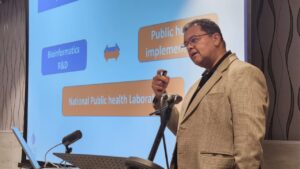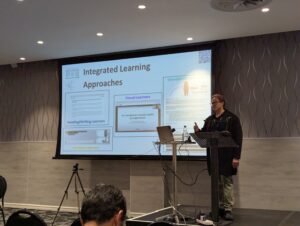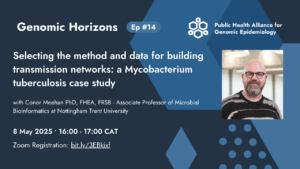
My journey from Amsterdam to Cape Town has been filled with continuous learning. The synergies built through partnerships with people and organizations from different regions have left me really interested. I am currently undertaking a three-month volunteering internship (October-December 2024) with the Public Health Alliance for Genomic Epidemiology (PHA4GE), a global consortium in the field of public health genomics.
As a finance graduate, I joined the consortium’s Secretariat, based at the University of Western Cape in Cape Town, South Africa. My internship focuses primarily on shadowing operations, finance, administration and communication portfolios. Having an open mindset has enabled me to quickly grasp the fundamentals of genomics and relate them to these various portfolios.
One particularly engaging activity involved finalizing a pitch deck for organizational sustainability. After insightful discussions with members of the Secretariat on different strategies for sustainability, we collaboratively developed an investor pitch.
This resource is designed to support the organization in sourcing funding to maintain operations. The final product was only possible after several brainstorming sessions which combined business and research-oriented thinking.
PHA4GE is an alliance actively working to establish access to flexible, sustainable bioinformatics capacity. Its commitment to development, innovation and collaboration amongst the public health community is evident in its efforts to produce open resources which reduce the barrier to entry. These include valuable outputs on various pathogens, such as guidance documents and data standards for antimicrobial resistance (AMR) and SARS-CoV-2 and Mpox.
By contributing to PHA4GE, individuals become part of a larger network advancing bioinformatics tools and solutions in response to disease outbreaks and existing health crises. These contributions enable PHA4GE to maintain on-going research, focus area development and efforts to remain sustainable and adaptable in an ever-changing world.
Chad Faul from Bremer Bank quotes ‘nonprofit leaders must continually position for sustainable growth to achieve their mission-related goals across markets and economic dynamics. Successfully balancing these goals can help nonprofit organizations most effectively serve their communities for many years.’
This sentiment underscores the importance of sustaining PHA4GE’s effort, which is currently represented in over 60 countries collaborating on critical pathogen-focused resources. The organization’s emphasis on equitable solutions and international stakeholder collaboration; adhering to principles of transparency and openness, ensures its contributions are not only sustainable but also scalable.
I am truly happy to have first-hand experience of this global cause!
Ghislaine van Vlijmen
Financial Support Specialist – Intern



